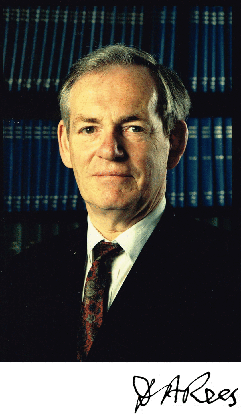Related Research Articles

The University of Leeds is a public research university in Leeds, West Yorkshire, England. It was established in 1874 as the Yorkshire College of Science. In 1884 it merged with the Leeds School of Medicine and was renamed Yorkshire College. It became part of the federal Victoria University in 1887, joining Owens College and University College Liverpool. In 1904 a royal charter was granted to the University of Leeds by King Edward VII.

The Royal Geographical Society (with the Institute of British Geographers), often shortened to RGS, is a learned society and professional body for geography based in the United Kingdom. Founded in 1830 for the advancement of geographical sciences, the society has 16,000 members, with its work reaching the public through publications, research groups and lectures.
Paul Felix Hoffman, FRSC, OC is a Canadian geologist and Sturgis Hooper Professor Emeritus of Geology at Harvard University. He specializes in the Precambrian era and is widely known for his research on Snowball Earth glaciation in the Neoproterozoic era particularly through his research on sedimentary rocks of Namibia.

Professor David John Mabberley, is a British-born botanist, educator and writer. Among his varied scientific interests is the taxonomy of tropical plants, especially trees of the families Labiatae, Meliaceae and Rutaceae. He is perhaps best known for his plant dictionary The plant-book. A portable dictionary of the vascular plants. The third edition was published in 2008 as Mabberley's Plant-book, for which he was awarded the Engler Medal in Silver in 2009. As of June 2017 Mabberley's Plant-book is in its fourth edition.
Gordon Valentine Manley, FRGS was a British climatologist who has been described as "probably the best known, most prolific and most expert on the climate of Britain of his generation". He assembled the Central England temperature (CET) series of monthly mean temperatures stretching back to 1659, which is the longest standardised instrumental record available for anywhere in the world. It provides a benchmark for proxy records of climatic change for the period covered, and is a notable example of scientific scholarship and perseverance. His two papers describing the work are available online.

Kantilal Vardichand "Kanti" Mardia is an Indian-British statistician specialising in directional statistics, multivariate analysis, geostatistics, statistical bioinformatics and statistical shape analysis. He was born in Sirohi, Rajasthan, India in a Jain family and now resides and works in Leeds. He is known for his series of tests of multivariate normality based measures of multivariate skewness and kurtosis as well as work on the statistical measures of shape.
John Ross Mackay, was a Canadian geographer. He is most noted for his explorations of permafrost phenomena in the western Canadian Arctic. His 40 plus years of study has enabled the building of pipeline operations and petroleum explorations in areas of frozen ground. The Royal Society of Canada stated the following when Mackay was awarded the Willet G. Miller Medal in 1975:
The Victoria Medal is an award presented by the Royal Geographical Society. It is awarded "for conspicuous merit in research in geography" and has been given since 1902, in honour of the late Queen Victoria. Up until then, the society's Patron's Medal had alternatively been known as the "Victoria Medal", and the new medal resembled its original design.
Germán Elías Berríos FMedSci, FRCPsych is a professor of Psychiatry at Cambridge University in the United Kingdom.

Brian Joe Lobley Berry is a British-American human geographer and city and regional planner. He is Lloyd Viel Berkner Regental Professor in the School of Economic, Political and Policy Sciences at the University of Texas at Dallas. His urban and regional research in the 1960s sparked geography’s social-scientific revolution and made him the most-cited geographer for more than 25 years.

Paul A. Longley is a British geographer. He is Professor of Geographic Information Science (GISci) at University College London (UCL), UK, where he also directs the ESRC Consumer Data Research Centre. Prior to joining UCL in July 2000, he was the Professor of Geography at the University of Bristol.
John Peter Oleson is a Canadian classical archaeologist and historian of ancient technology. His main interests are the Roman Near East, maritime archaeology, and ancient technology, especially hydraulic technology, water-lifting devices, and Roman concrete construction.
The School of Geography is part of the Faculty of Environment at The University of Leeds based in the UK.

Dame Judith Anne Rees,, is a distinguished academic geographer, was interim director of London School of Economics and Political Science (LSE) from May 2011 until September 2012. Professor Rees also acts as director for its Centre for Climate Change Economics and Policy and is Vice-Chair of the Grantham Research Institute on Climate Change and the Environment.
Robin Alan Butlin is emeritus professor of geography, and visiting research fellow, based in the School of Geography at the University of Leeds. Robin was a professor of historical geography and started work at Leeds in 1998 as a visiting professor of geography after working as principal and professor of historical geography at the University College of Ripon and York St John in York.

Fay Ajzenberg-Selove was an American nuclear physicist. She was known for her experimental work in nuclear spectroscopy of light elements, and for her annual reviews of the energy levels of light atomic nuclei. She was a recipient of the 2007 National Medal of Science.

Graham Dixon-Lewis, MA, DPhil, FRS was a British combustion engineer.
John Laker Harley CBE FRS FLS FIBiol was a British botanist, known for his work on ectomycorrhizal physiology.

Sir David Allan "Dai" Rees, FRS was a British biochemist and science administrator who was chief executive of the Medical Research Council between 1987 and 1996.
Ian Macmillan Ward was a British physicist specialising in polymer science. He was Cavendish Professor of Physics in the School of Physics and Astronomy at the University of Leeds where he was also chairman of the School of Physics and Astronomy and first director of the Polymer Interdisciplinary Research Centre.
References
- ↑ "Phil Rees Symposium". Archived from the original on 13 June 2011. Retrieved 15 November 2010. Phil's retirement symposium.
- ↑ Phil Rees receives the Victoria Medal.